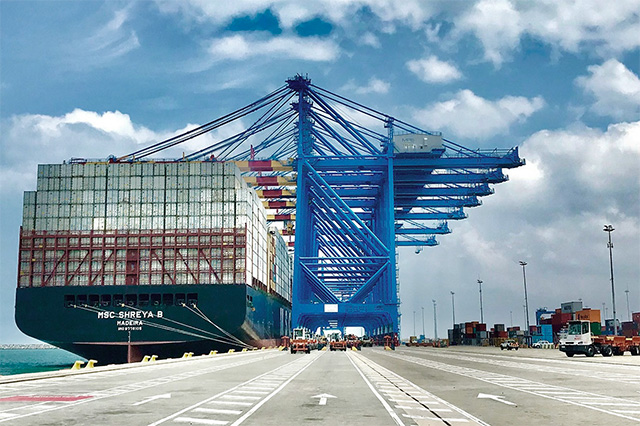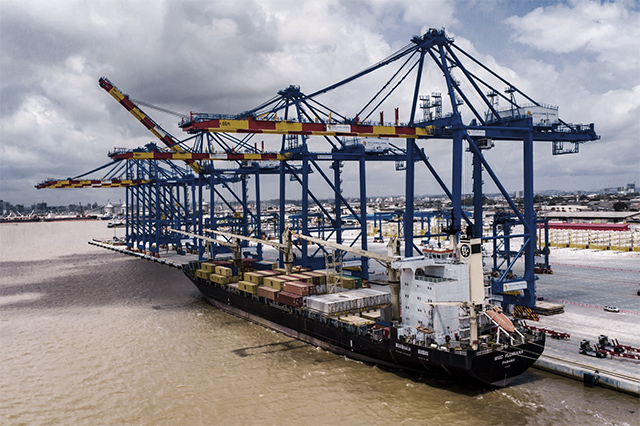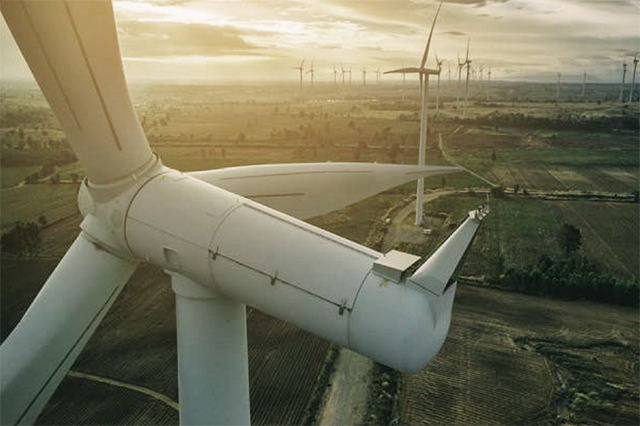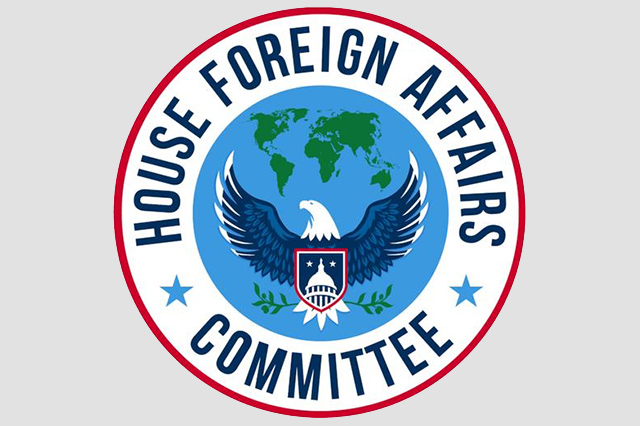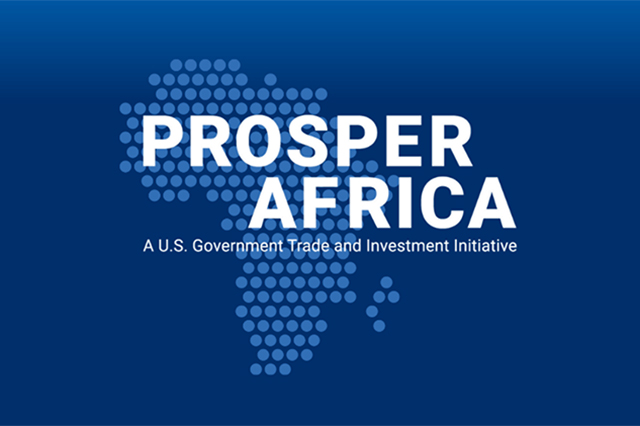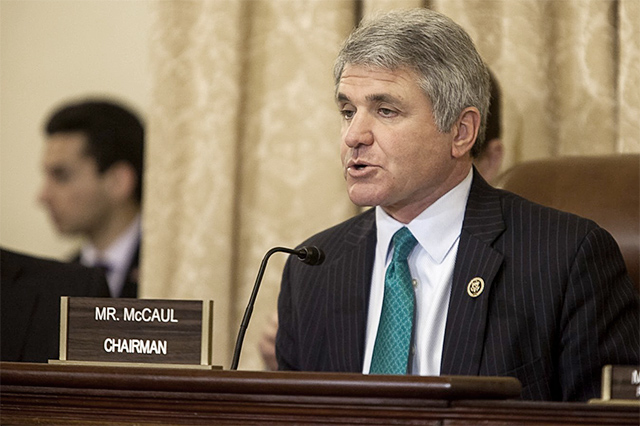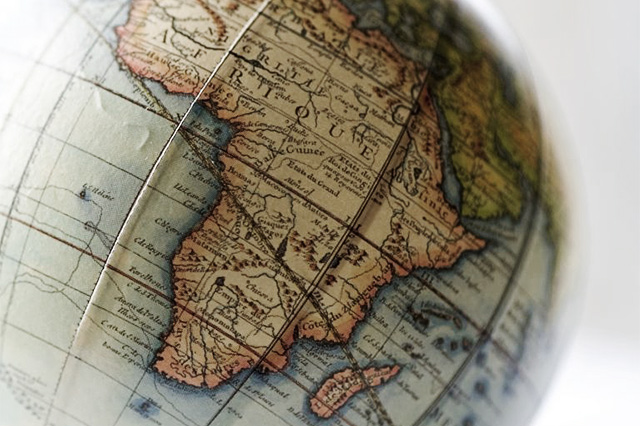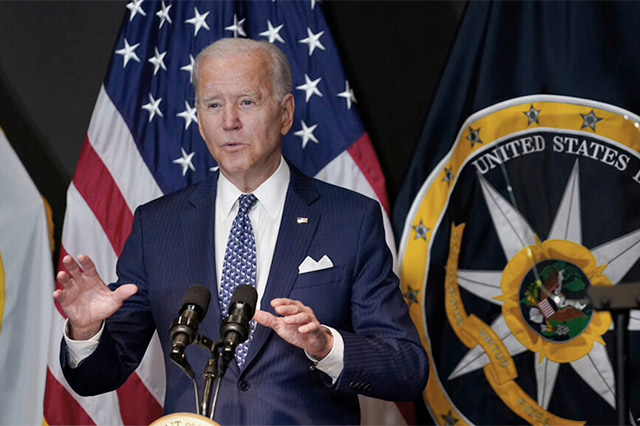Prosper Africa coordinates 17 US agencies to help boost Africa’s low participation in AGOA
The US has mobilised 17 relevant government departments and agencies under the umbrella of Prosper Africa coordinator British Robinson to try to clinch deals between US and African businesses that will increase utilisation of the African Growth and Opportunity Act (Agoa).
The 20th annual Agoa Forum ended in Johannesburg at the weekend with an all-round commitment by Africa and the US to renew the preferential trade programme when it expires in 2025.
There was also considerable discussion about how to increase the usage by eligible sub-Saharan countries of Agoa, which gives them duty-free access to the lucrative US markets for most of their exports.
Despite these considerable benefits, very few African countries have taken advantage. South Africa has been the biggest beneficiary by far if oil exports are excluded.
Last year South Africa accounted for more than 35% of all goods exported to the US under Agoa, about $3.615-billion; with Nigeria second, with $3.523-billion (mostly oil); followed by Ghana, with $746-million; Kenya, $615-million; Madagascar, $407-million; Angola, $391-million; Lesotho, $261-million; Ivory Coast, $128-million; Gabon, $126-million and Democratic Republic of the Congo, $92.3-million (figures from Trade Law Centre).
Matching suppliers and buyers
Before the Agoa Forum last week, the assistant US trade representative for Africa, Constance Hamilton, acknowledged that Agoa had not fulfilled the promise it seemed to offer when it was launched in 2000 that it would be a “game-changer” for US-Africa economic relations, greatly boosting trade and investment and helping integrate African economies.
As a result, the forum focused on how to make Agoa work better after it is renewed next year, and especially how to ensure more countries use it to export more products. The suggestions included bringing North African countries into Agoa supply chains, limiting the “graduation” of countries from Agoa when they attain high-income status and reviewing the Agoa status of countries only every three years and not annually as at present.
Prosper Africa’s Robinson said her agency’s contribution to expanding the usage of Agoa would be to continue to do more to promote trade and to make more matches between US and African businesses.
“And when we do so we will see an increase in utilisation,” she told Daily Maverick.
“It’s not the whole story but it’s part of it. It’s significant.”
She told the forum that to increase trade promotion and business matchmaking, Prosper Africa would next year launch its Africa Desk which would match African suppliers with US buyers, connecting the African suppliers to large US retailers such as Costco, Walmart, Kroger and Albertsons. This idea was warmly welcomed at the forum.
Earlier at the forum, Robinson punted the example of the South African vegetable juice company Rugani, which Prosper Africa had backed by preparing it for entry into the US market, including attending a fancy food trade show in the US, then meeting a vetted US distributor and signing a supply agreement worth $500,000.
She said Rugani had gone on to become a household name in the US, where it was sold by the giant retailer Costco and had also broken into other international markets.
Robinson said Prosper Africa had coordinated 17 US government departments and agencies, including the Small Business Administration, Department of Commerce, Department of Treasury, US Trade Representative, Development Finance Corporation, State Department, Millennium Challenge Corporation, Exim Bank, USAid and Customs and Border Patrol.
Based in Washington, Prosper Africa has branch offices in South Africa and Morocco.
Robinson said the instruments at its disposal included equities, debt and grant funding. And Prosper Africa helped businesses by acting as a one-stop shop for accessing government support.
She said she had met with a range of businesses in South Africa on her present trip, from small producers like Rugani to large venture capitalists, private equity firms and asset managers of funds who were interested in partnering with Prosper Africa to grow investment on the continent.
She also met representatives of many sectors, from agriculture to climate change and green energy, all the way to health.
Robinson wouldn’t go into details of how the Agoa legislation could be improved to increase utilisation, as that was the prerogative of Congress. But she found the forum “very hopeful” and underlined the word “commitment” used by US Trade Representative Ambassador Katherine Tai at the forum.
“So that commitment of the US government to Africa remains and it’s strong but also hope-filled. It was a hope-filled event. It ended on a wonderful positive note that we have much to do and much opportunity.
“We heard the African private sector, we heard the delegations, the various trade ministers affirm Prosper Africa’s remit and goal of further deepening our relationship around trade, and that means promotion as well as access as well as matchmaking, of African suppliers to US buyers and vice versa. And it also means providing technical assistance and support with our programming in Prosper Africa around promotion of African suppliers. So we do trade promotion as well as access to markets and matchmaking.”
Tariff schedule
Eckart Naumann, an economist and Trade Law Centre associate, pointed out that although it was true that utilisation of Agoa was generally low (purely based on the share of Agoa trade), Agoa beneficiaries were ultimately subject to virtually no other US import duties.
“Many goods don’t need Agoa — and are duty-free under normal tariff relations [NTR], the tariff treatment that the US extends to general trade. A country that exports goods under NTR may still be a successful exporter to the US but just doesn’t happen to only produce Agoa-eligible goods.”
He said he had heard at the forum that some considered the low rate of Agoa utilisation a reflection on Agoa.
“Rather, it also points at the favourable US tariff schedule which, aided by Agoa, allows around 97% of all possible trade tariff lines to enter duty-free — be it under normal trade terms (around 37% of the total) or Agoa (around 60% of the total).
“Some countries have very high Agoa utilisation rates, but aren’t always the greatest exporters in terms of trade volumes. It’s just that their exports are concentrated in eligible tariff lines.
“SA’s utilisation was 25% in 2022, but that’s obviously because we export such a large amount of duty-free goods under NTR.
“That said, Agoa utilisation could always be better — but it’s not necessarily Agoa that’s the issue, but often also supply-side constraints — or relate to a challenging trade process: producing goods that are in demand in the US and still competitive, finding buyers, navigating the US regulatory environment … dealing with costly logistics, customs clearance procedures, inefficient ports (South Africa and others), etc.”



